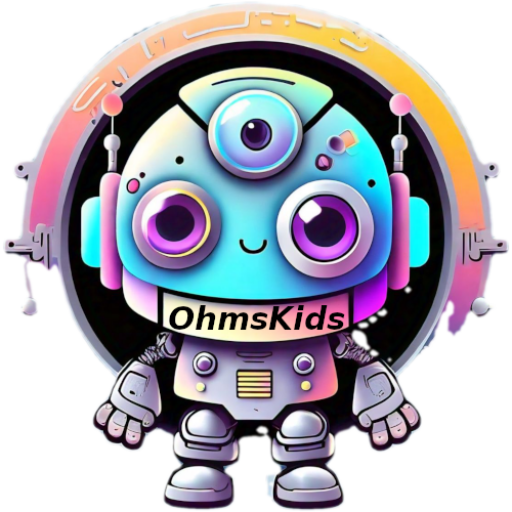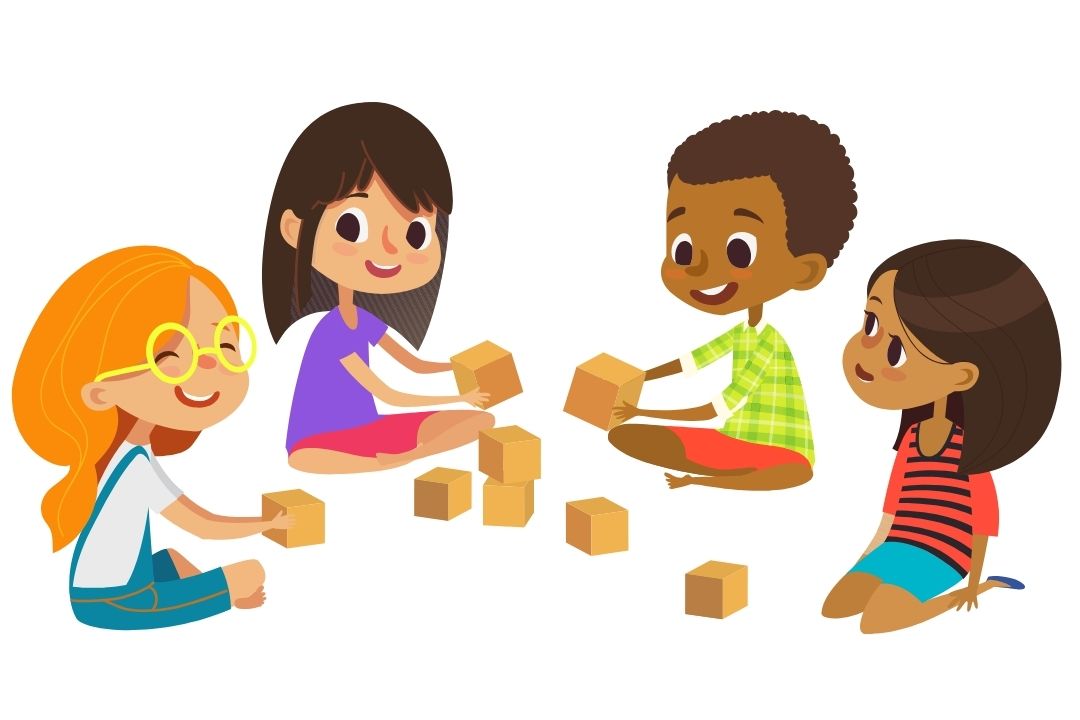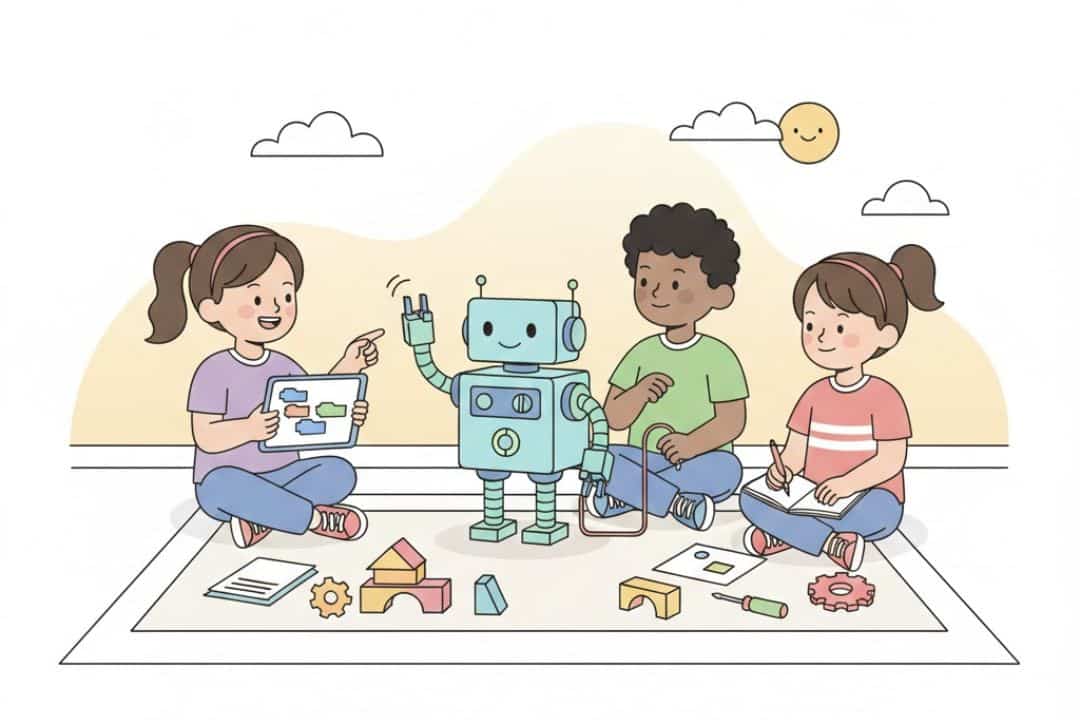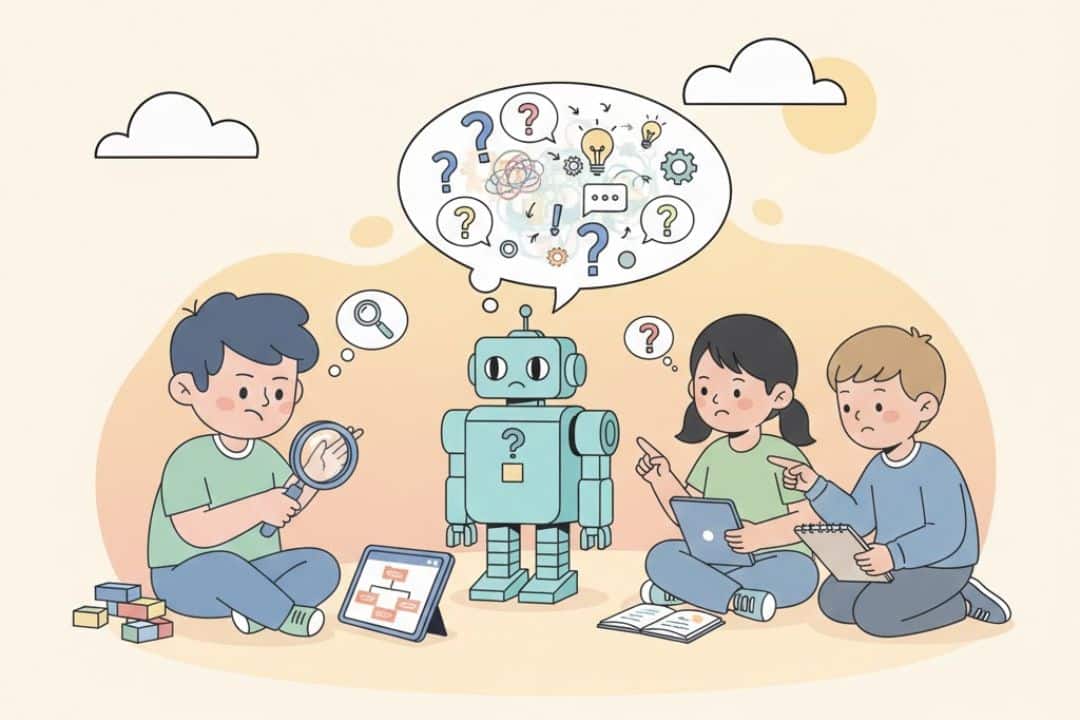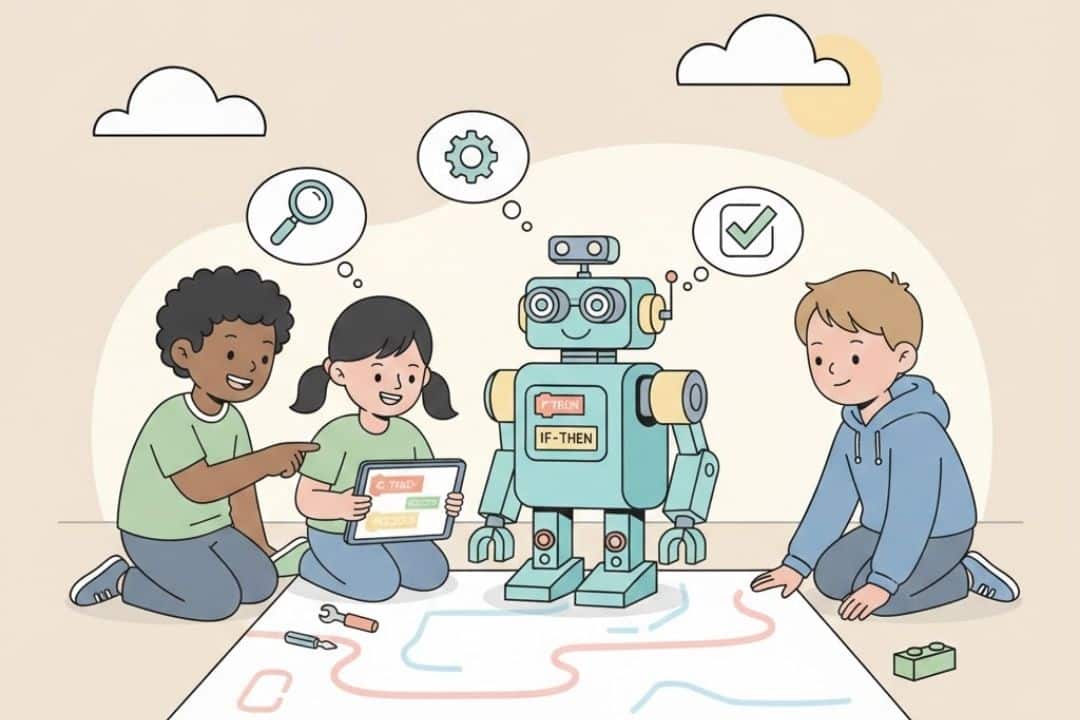Critical thinking is a crucial skill that helps children analyze problems, make decisions, and think independently. The best way to develop these skills? Through fun, engaging activities! At OhmsKids Coding, we integrate play-based learning to help young thinkers strengthen their problem-solving and decision-making abilities while having fun.
In this blog, we’ll explore some exciting games and activities that can help boost critical thinking in children aged 4-10.
Why Games Are Essential for Critical Thinking
Games and interactive activities encourage young thinkers to:
✅ Analyze problems and come up with solutions.
✅ Think outside the box and explore new ideas.
✅ Improve decision-making through trial and error.
✅ Collaborate with others and build communication skills.
Let’s dive into some of the best games and activities to strengthen critical thinking in children!
1. Logic Puzzles & Brain Teasers
Puzzles are a great way to encourage children to think critically. Some fun options include:
🧩 Sudoku for Kids – Helps improve pattern recognition and logical thinking.
🧠 Riddles & Brain Teasers – Encourages kids to think creatively and analyze different perspectives.
🔍 Spot the Difference – Enhances observation and attention to detail.
2. Strategy-Based Board Games
Board games that require planning and decision-making are excellent for developing critical thinking. Try these fun options:
🎲 Chess & Checkers – Teach strategic thinking and problem-solving.
🃏 Uno & Matching Games – Improve memory and quick decision-making.
🌍 Scrabble & Word Games – Boost vocabulary while enhancing problem-solving skills.
3. Coding Games & Activities
Coding is one of the most effective ways to develop critical thinking in young thinkers. At OhmsKids Coding, we use interactive coding challenges that encourage logical reasoning and creativity.
💻 Scratch Junior – Allows kids to create their own games and animations using code blocks.
🤖 LEGO Robotics – Teaches problem-solving by bringing coding projects to life.
🎮 Online Coding Challenges – Fun, interactive activities that build logical thinking skills.
4. Real-World Problem-Solving Challenges
Encourage kids to solve real-life problems through creative thinking:
🏗 Building Challenges – Give children LEGOs, blocks, or recycled materials to create structures.
🛒 Shopping on a Budget – Give them an imaginary budget and let them decide what to “buy” for a family meal.
🔬 Science Experiments – Simple experiments like making a volcano with baking soda and vinegar teach cause and effect.
5. Role-Playing & Storytelling Games
Role-playing and storytelling encourage young thinkers to make decisions and explore different viewpoints.
🎭 “What Would You Do?” – Present kids with a situation and ask how they would handle it.
📖 Story Building – Start a story and have kids add their own creative twists.
🎤 Debates & Discussions – Let kids express their opinions and defend their reasoning.
Encouraging Critical Thinking Every Day
Developing critical thinking in young thinkers doesn’t require complex lessons—it can be part of their everyday play! By engaging in these fun games and activities, kids will naturally enhance their problem-solving and decision-making skills while having a great time.
At OhmsKids Coding, we integrate these techniques into our classes, ensuring that every child learns in an interactive, engaging way.
💡 Ready to boost your child’s thinking skills? Join in OhmsKids Coding today! 🚀
